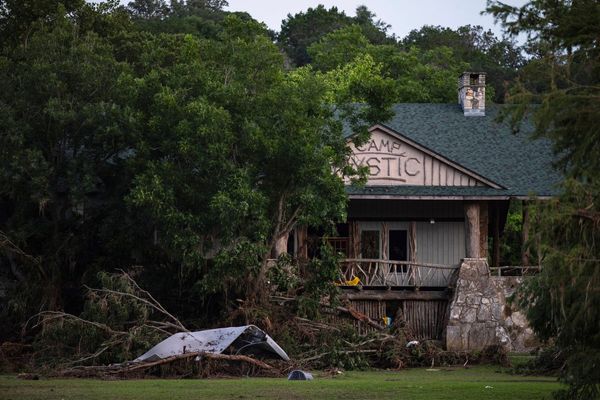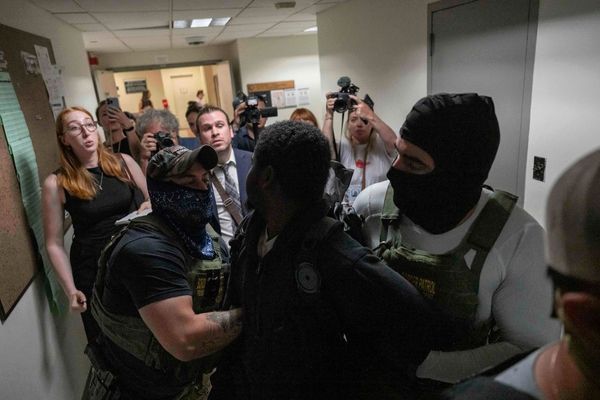Perhaps nothing gives a clearer insight into who Nick Caporella is than the National Beverage CEO and founder's no-nonsense apology in a March 2019 earnings release. The company posted a nearly 40% drop in quarterly profit.
"We are truly sorry for these results stated above," he point-blank said in the release.
Caporella is not one to dillydally. Never mind that during the period, sales slipped due to since-disproven allegations over the source of some flavorings National Beverage uses in its wildly popular LaCroix sparkling water. The allegations have since been dismissed.
Even at age 84, and competing head-on in a cutthroat industry against behemoths Coca-Cola and PepsiCo, Caporella and National Beverage raise eyebrows and garner publicity. He picks up market share via unconventional marketing and trendy packaging of products like LaCroix sparkling water.
Above all, unconventional thinking from the CEO can't be ignored.
Dare To Stand Out Like The National Beverage CEO
Colorful might be an understatement to describe the National Beverage brand — largely known for selling colorless beverages. Its CEO casually tosses out this thought-provoking tongue-twister when asked how an entrepreneur can best succeed in business: "It's not your aptitude, but your attitude, that determines your altitude in life."
Nor can you make up the colorful comments out of Caporella's mouth after that lousy quarter. "One can be induced to purchase by cheapening price or giving away a product, but falling in love with a feeling of joy is the result of contentment," Caporella said. "Just ask any LaCroix consumer. ... Would you trade away that LaLa feeling? 'No way,' they shout."
Hard to believe that his nearly $5 billion company, best-known for its sparkling waters, juices and energy drinks, was founded more than 40 years ago with Shasta, a then quirky but still iconic carbonated soft drink, as its go-to beverage. "I wanna Shasta," was its not-so-memorable slogan way back then. Shasta never gave Coca-Cola or Pepsi a real run for the cola money. But everything started to change in 1996, when Caporella was savvy enough to add the LaCroix brand to the company's beverage menu.
Fast-forward and LaCroix last year accounted for roughly 15% of the sparkling bottled water market, even topping both PepsiCo's and Coca-Cola's share, says Statista. The LaCroix brand has created a coolness factor — in part by its colorful cans and in part by its category mojo — that's hard to touch. Sure, Coca-Cola and PepsiCo have valiantly tried to catch up. But so far, they've failed.
Don't Fear Big Rivals
Both PepsiCo and Coca-Cola rebooted attempts to compete. PepsiCo's current sparkling water brand, Bubly, replaced the company's Aquafina brand several years ago. Coca-Cola ditched its Dasani Sparkling water in 2020 with a punchier "AHA" brand, which almost sounds like a phrase Caporella would use. National Beverage even has an effervescent ticker symbol: FIZZ.
Investors have done well with FIZZ, too. Shares of National Beverage soared more than 4,600% since going public in September 1991 with Caporella at the helm as CEO. That's multiple times the roughly 1,000% gain by the S&P 500 during that time. Meanwhile, the company's profit hit $171 million in fiscal 2020, or an adjusted $2.78 a share, says S&P Global Market Intelligence. That's up more than 470% since 2006, or roughly 13% average annual compounded growth.
No major soda company is anywhere near that. Much of the growth kicked up a notch in 2015 when colorless, sugarless bubbly water LaCroix caught on big. The success drew the attention of some of the top spenders on consumer product marketing in the world.
Caporella: Keep Innovating
Caporella continues to find ways to thrive despite massive rivals.
Coca-Cola and PepsiCo spend more on marketing than National Beverage posts in revenue. Last year, for instance, Pepsi spent more than $4 billion on advertising. Yet, both can't match National Beverage's growth. National Beverage's stock outperformed Pepsi's by more than 4-to-1 and Coke's by roughly 8-to-1 since going public.
Caporella says this corporate success comes down to stepping out of the way so employees can succeed. "I believe in a very simple style of management, where few people work very hard with much responsibility, in a decentralized environment, motivated by an entrepreneurial spirit that is stimulated by the creativity of each member of the team," he said.
How to find these great team members? When hiring new employees he always chooses good character first — then talent. "If you fail to accept nothing but the very best, more often than not you will get it," he said.
Do What You Love
Inventing and selling new drinks isn't just a job for Caporella. It's a lifelong passion. And it's paid off. He's ranked No. 299 on the Forbes 400 list of the wealthiest Americans. More than money juices him. He relishes coming up with new products with names like LimonCello and Pastèque.
Where does he concoct this stuff?
Among other things, he credits taking the time to clear his head by indulging in his favorite hobbies. Piloting his own aircraft helps to keep the octogenarian's mind sharp. And, yes, he still walks several miles every morning, he says.
Take Strength From Difficulty
Caporella made his own way from humble beginnings. Son of Italian immigrants, Caporella grew up in Connellsville, Pa. Both his parents worked to make ends meet. His father was a coal miner. And his mom ran a sandwich store. It was clear to Caporella that he needed to pitch in as soon as he could.
At just 11 years old, he landed low-paying, grueling jobs. He sold scrap metal to junkyards, fixed bikes, and hauled odds and ends for farmers. The family moved to Florida when Caporella was still in high school. His dad got a job in construction. Money, though, was still tight.
They lived in a cramped guesthouse in someone's backyard. The family looked to save money to buy a place of their own. It was up to young Caporella to help make mortgage payments. He only made $1 an hour working on construction sites in southern Florida. But he knew he could do more.
Own The Means Of Production
Caporella found he had to own the means of production to build real wealth. He talked a seller of a $9,000 excavation machine to sell it to him starting with a $250 down payment. He opened his own construction company and started his career as a young entrepreneur.
Next, he bid on and was awarded a large housing development project in Puerto Rico. While in Puerto Rico, he also went into the sand and gravel business. He later sold both businesses, returned to the U.S. and began to accumulate wealth. Still, he saw more opportunity.
Caporella returned to Florida to open a site preparation company called Caporella & Sons. He sold it to Burnup & Sims in 1972. He was president first, and then CEO in 1976. Oddly enough, this was his introduction to the food and beverage business — which he has never left. Burnup & Sims also happened to own a Pepsi bottler.
It didn't take long for the idea to create a beverage company to bubble up. Caporella formed National Beverage in 1985 with Shasta soda as its key product. He later added Faygo, LaCroix and Everfresh. National Beverage parted ways with Burnup in 1994.
"Success in business means finding and tapping every possible resource, regardless of how infinitesimal it may first appear," he says.
Know Challenges Never Stop
Challenges keep testing Caporella. The company's top modern challenge hit in 2018. A lawsuit was filed claiming the company's ingredients were not "100% natural." The stock got crushed, falling by two-thirds from September 2018 through March 2020. Shares, though, fully recovered the lost value earlier this year after the plaintiff completely retracted the claim in February 2020.
Now, Caporella and National Beverage are optimistically moving forward, again. "The best way to predict the future is to invent it," he says.
People who know Caporella respect his ability to deal with challenges head-on. And lead board member, Samuel Hathorn Jr., said, "Nick has always put the interests of all shareholders ahead of any personal considerations."
The company's dividend policy is part of that. It routinely pays special dividends, vs. buying back stock, giving income to investors. The company declared 10 cash dividends the past 16 years, totaling just shy of $1 billion. Top outsider shareholders include Renaissance Technologies at 6% and Kayne Anderson Rudnick at 5%. BlackRock owns 4% and Vanguard 3%.
Even in the twilight of his career, Caporella remains a die-hard entrepreneur. He says a successful entrepreneur must possess four qualities: courage, compassion, determination and sound philosophy.
For good measure, Caporella tosses one more entrepreneurial must-have into the mix: "You can't say 'can't' and succeed."
National Beverage CEO Caporella's Keys:
- CEO and chairman of National Beverage, seller of the popular LaCroix sparkling water, since 1985.
- Overcame: His family's lack of financial resources growing up. And now, challenges poised by competing with massive multinational beverage companies with much deeper pockets.
- Lesson: "You can't say 'can't' and succeed."







